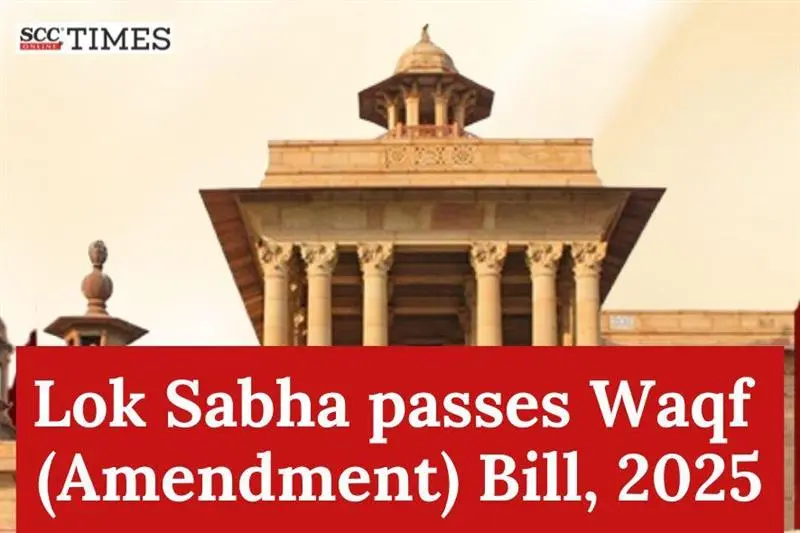The Waqf (Amendment) Bill, 2025 is passed in Lok Sabha on 3-4-2025 and was tabled in Lok Sabha on 2-4-2025 by Minister of Minority Affairs, Kiren Rijiju, proposing revision of several clauses in the existing Waqf Act, 1995 which governs the administration of waqf properties in India.
Keys Changes that were tabled in Lok Sabha:
-
Renaming of Waqf Act, 1995 as the Unified Waqf Management, Empowerment, Efficiency and Development Act, 1995 (UMEED);
-
Clearly define “waqf” as waqf by any person practicing Islam for at least 5 years and having ownership of such property;
-
Ensuring that the creation of waqf-alal-aulad does not lead to the denial of inheritance rights to women;
-
Omitting the provisions relating to the “waqf by user”;
-
Providing the functions of the Survey Commissioner to the Collector or any other officer not below the rank of Deputy Collector who is nominated by the Collector for the survey of waqf properties;
-
Providing for a broad-based composition of the Central Waqf Council and the State Waqf Boards and ensuring the representation of Muslim women and non-Muslims;
-
Providing for establishment of separate Board of Auqaf for Boharas and Aghakhanis;
-
Providing for representation of Shia, Sunni, Bohra, Agakhani and other backward classes among Muslim communities;
-
Streamlining the manner of registration of waqfs through a central portal and database;
-
Providing for a detailed procedure for mutation as per revenue laws with due notice to all concerned before recording any property as waqf property;
-
Omitting Section 40 relating to the powers of Board to decide if a property is waqf property;
-
Decreasing the annual contribution from 7% to 5% payable to the Board by mutawalli of every waqf having the net annual income of not less than Rs. 5000;
-
Providing for filing of accounts of waqf by mutawallis to the Board through a central portal for better control over their activities;
-
Reforming the Tribunal structure with 2 members and providing for appeals against the orders of the Tribunal to the High Court within a specified period of 90 days;
-
Omission of Section 107 so as to make the Limitation Act, 1963 applicable to any action under the Act;
-
Omission of sections 108 and 108-A relating to special provision as to evacuee waqf properties and Act to have overriding effect.






